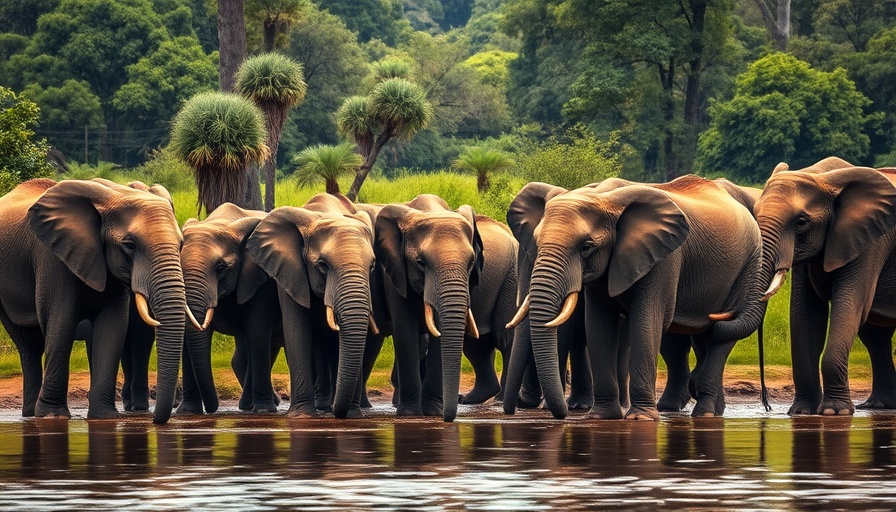
Rural Communities vs. Conservation: The Elephant Dilemma
The border between Malawi and Zambia is alive with a tension that pits rural farming communities against the goals of international animal conservation organizations. The relocation of over 260 elephants has sparked outrage and fear among local residents, who argue that they have borne the brunt of the decision made by the International Fund for Animal Welfare (IFAW). Since the elephants were moved to their area in 2022, the aftermath has been devastating: at least 12 lives have been lost, multiple injuries have occurred, and property damage runs into millions of dollars.
In 'Malawi-Zambia communities threaten legal action over elephant relocation,' the discussion dives into the complexities of wildlife conservation and its impact on local communities, sparking deeper analysis on our end.
Understanding the Impact: Lives Upended
South of Kasungu National Park, the stories are harrowing. Farmers whose livelihoods depend on crop success are struggling under the menace of elephants invading their fields, trampling crops, and destroying property. Local NGOs report that over 11,000 people have been directly affected by the influx of these majestic creatures, leading to devastating economic repercussions. The blame game continues as residents seek justice through a British law firm, Lee Day, suggesting that the balance between conservation and local community safety has been severely compromised.
Legal Ramifications and Community Advocacy
In a bold maneuver, residents have threatened legal action against IFAW due to what they claim is negligence surrounding the elephant relocation. They argue that the organization has overlooked the consequences of their actions—a stance that IFAW vehemently disputes, placing responsibility squarely on the Malawian government for addressing local grievances. This ongoing standoff highlights the precarious nature of wildlife management in a region where the interests of conservation often clash with human survival and safety.
The Global Perspective on Conservation Efforts
This incident is not just a local crisis; it reflects a broader struggle faced by communities across Africa. As global pressure mounts for wildlife preservation, particularly with growing elephant populations, conservationists face increasing scrutiny regarding the impacts of their decisions on local human populations. The rising elephant populations, while a sign of successful conservation, also create complexities that demand careful management and sensitivity to human concerns.
Future Insights: Finding a Middle Ground
Moving forward, it is critical for both the IFAW and the Malawian government to engage meaningfully with local communities, creating channels for dialogue and establishing protective measures to prevent further loss of life and property. Perhaps adopting a community-centric approach to conservation, where local voices contribute to decision-making, can pave the way for sustainable coexistence between humans and wildlife.
Local Voices: The Fight for Justice
The fight led by residents is not merely about seeking financial compensation; it's about reclaiming agency in their lives. The fear of elephants has turned neighbors into adversaries and has shattered the peace of rural life. Advocacy efforts highlight the necessity of accountability and the importance of inclusive governance where local needs factor into national policies. Each story shared by residents amplifies the urgency to mitigate the human-wildlife conflict that threatens their very existence.
Conclusion: Bridging the Gap
As the legal battle unfolds, this situation exemplifies the often-unseen repercussions of animal conservation efforts. It serves as a powerful reminder that without the integration of human interests, conservation efforts can lead to unintended consequences. Policymakers, conservationists, and local communities collectively need to explore solutions that respect the unbreakable bond between conservation and human safety to avoid tragic breakdowns like the one in Malawi and Zambia.
 Add Row
Add Row  Add
Add 




Write A Comment